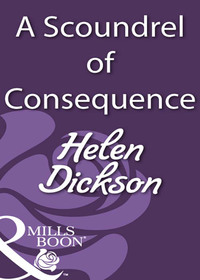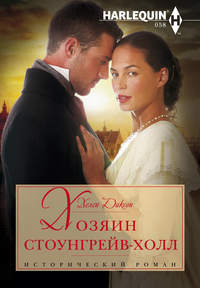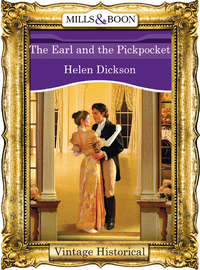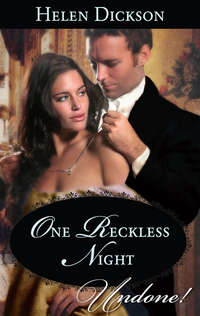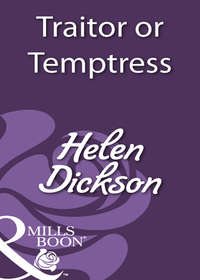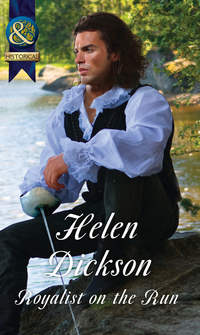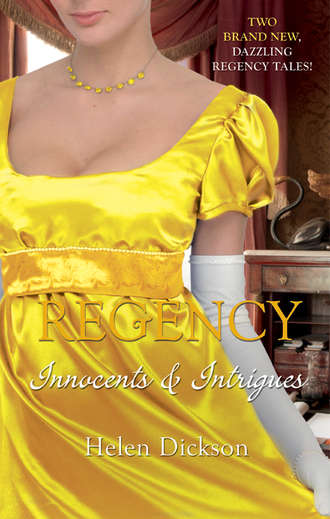
Полная версия
Regency: Innocents & Intrigues: Marrying Miss Monkton / Beauty in Breeches
‘But what will happen to them?’ Maria’s eyes searched his, and for a terrible stabbing moment she knew a fear so strong it seemed to take the breath from her body. She strove hard to curtail it. ‘How could I have left them? I should have stayed. Everyone has been talking about what was happening, but I didn’t really know how bad things were.’ She leaned forwards and gripped Charles’s arm with her hand. ‘Charles, we have to go back. We must.’
Astounded by her totally unreasonable request, Charles looked at her. She really was ignorant of what was happening in France. She really had been contained in some kind of bubble at the chateau, living in some kind of dream world, while chaos went on all around her.
There was a brooding, hopeless expression in his eyes. ‘We cannot go back. It has to be faced.’
She stared at him, tense and white faced. People were milling about in the yard as the carriage began to move, but she did not see them. She said in a hard, breathless voice that she fought to control, willing him to comply to her wishes, ‘Please, Charles. It is not much to ask.’ She could not endure it and she could not bear to think about it. ‘I have to find out if she is all right—help her if need be.’
‘Stop it,’ Charles said curtly, averting his gaze as they took to the road. ‘You don’t know what you are asking. It isn’t as easy as that. There is nothing that can be done beyond what I have already done. We go on to Calais.’
She snatched her hand away. ‘You mean you won’t do anything? That’s what you’re saying.’
He turned his head and looked at the white face beside him. Her eyes were no longer hard, but wide and imploring, and there was pure panic in her voice. The change in that face was like a knife in Charles’s heart. After a moment, he said, ‘No. I’m sorry.’
She did not look at him and her own hurt made her desire to hurt him also. ‘No, you’re not. You don’t care—and why should I expect you to? You don’t know them. They mean nothing to you. You don’t understand,’ she whispered numbly.
‘Oh, yes, I do,’ he hissed fiercely, the frustration of his inadequacy to do anything to help her aunt and cousin increasing his anger. ‘I understand only too well. You did not understand the dangers that threatened you all at Chateau Feroc, and now you do you are perfectly prepared to jeopardise your chances of escaping the troubles, and risk both our lives into the bargain, just so that you can do what? If the chateau has not been attacked, then nothing will have changed. Your aunt will be as indomitable and awkward as ever, so our return will achieve nothing.’
‘At least I will know.’
‘Know? Know what, Maria? When I went to the Chateau Feroc to see the Countess I had just come from Paris. I had seen with my own eyes what was happening—the riots, the violence, death and looting that was going on all over the place. I hope I am wrong and that Chateau Feroc is not attacked. I can only say that in the event of my timorous fears proving justified, I hope the Countess will obtain some comfort from the realisation that she has sacrificed the life of her daughter and jeopardised the safety of the chateau in order to demonstrate a confidence in the fidelity of her servants.’
‘You speak harsh words. Do you forget that when you arrived she had just lost her husband? For her to contemplate leaving her home so soon was anathema to her.’
Charles’s precarious hold on his temper had departed and his voice was raw edged with anger. ‘I appreciate that, but this is no time for sentiment. She must have had doubts, but she would not admit it. It is all very laudable. But in the present crisis it is hardly practical.’
‘And if the chateau has been attacked?’ Maria asked, her eyes hard and accusing. ‘What then?’
‘As to that I cannot say. It depends on the mood of the mob.’
She stared at him, images of the chateau burning and her aunt and Constance at the mercy of those terrible, maddened people. ‘Do—do you think they would …?’
‘There would be nothing that you or I could do for them. I’m sorry, Maria, but that is the truth of it and you must face it.’
‘I never will.’
Although her glorious green eyes were glaring defiance at him, they were sparkling with suppressed tears, shining with an inner pain, and listening to her breathless, pleading voice, Charles would have given anything in the world to take her in his arms and kiss her tears away. But he knew that he must not.
‘I would never have left had I thought anything bad would happen.’
‘You don’t know that anything bad has happened,’ he said, trying to temper his impatience. ‘Plead their case all you like, Maria, but you will be wasting your breath. I have to be in London very soon and I cannot afford to let anything interfere with that.’
‘And I am one responsibility you can’t wait to be rid of,’ Maria retorted ungraciously.
‘I will not turn back, Maria. It is out of the question. We go on. Both of us,’ Charles said pointedly. ‘With any luck we’ll reach the coast tomorrow.’
The journey continued with Maria quietly seething at what she considered to be his overbearing and unreasonable attitude. Charles did not attempt to draw her out. He wished that he did not feel so responsible for her. It was an absurd feeling. It annoyed him and there was no reason for it. Nevertheless he could not rid himself of the feeling.
Glancing across at her, at her sad face and her small hands clasped together on her lap, he frowned. He was aware of a disturbing tug at his heart, and thinking again of how fortunate she was to be leaving France, he knew that should they be apprehended she was going to be a devilish responsibility.
Aware of Charles’s penetrating gaze, Maria looked at him at this point in his reflections. She noted the frown and it brought back her courage and a sudden spark of anger. Sitting straight-backed, she said in a cool, composed voice, ‘I apologise for my lapse in composure. It won’t happen again.’
‘There’s no need to apologise. Just as long as you understand why I had to refuse your request to turn back.’
‘I do. Of course we can’t go back. It would be madness. I am just so concerned for my aunt and Constance.’
It was almost dark and they were about to stop for the night at the next hostelry when they saw the flames rising from a large villa on the outskirts of a nearby village. The fire was licking upwards, a thick plume of smoke curling into the darkening sky.
On his perch with a loaded blunderbuss beside him, Pierre stopped the coach in alarm when they were approached by a noisy, bedraggled band of people heading away from the fire. Many of the excited villagers had poured out on to the streets to view the spectacle, amid a great deal of howling and buffoonery. The men approaching the coach, their confidence already heightened with bloodlust, were armed with sticks, poles and spades and anything else that constituted a weapon.
‘What is it? What do they want? Why have they stopped us?’ Maria asked in alarm.
Charles looked at her. In the glow from the carriage lamps her face was white, her eyes enormous but quite steady. ‘No doubt we’ll find out soon enough.’ His eyes were anxious and alert, but his voice was neither. He spoke to Maria in an entirely matter-of-fact tone that somehow carried complete conviction. ‘Whatever happens, trust me. Unless they order you to get out, stay in the coach. We’ll get out of this.’
‘I wish I had your confidence,’ she murmured fearfully, her eyes on the ever-increasing rabble.
Charles did not answer. It was as if she was not there. He was watching the men saunter towards them. There was an odd, still look on his face. His eyes narrowed suddenly. The abstraction left them and his hand closed round the butt of his pistol on the seat beside him, concealed by a fold in his coat, and Maria, watching him, as she always watched him when he wasn’t looking at her, was all at once aware that behind that casual gesture his nerves were tense and alert, as if he were waiting for something to happen.
The leader of this band of unsavoury, hostile peasants was a man in a green-caped coat, his complexion the colour of ivory. His hatchet face with the thin lips and heavy, drooping eyelids was a curious mixture of alertness and perturbability. The chin that rested on the abundant folds of his untidy and soiled neckcloth was long and resolute. He peered inside with a somewhat suspicious glance at the coach’s inhabitants.
‘What is this?’ Charles asked calmly. ‘We have done you no harm and most certainly intend none.’
‘Well, now,’ the man drawled. ‘It’s simple enough. We’ve got no reason to see you and your lady—uncomfortable, but we’ve got no reason to trust you either.’ He squinted one eye at Charles. ‘Why, I don’t know you—not at all.’
‘It is a simple enough problem to cure,’ Charles returned. ‘Duval’s the name. Charles Duval. I am of the people—of peasant stock on both sides.’
‘But now you walk and talk like a swank.’
‘I’ve bettered myself, I admit. Do you find something wrong with that?’
The man nodded slowly, without taking his eyes off the stranger. ‘No—I was right. I don’t know you.’
‘The fire? Whose house is it?’ Charles asked, appearing coolly unruffled by the interruption to their journey and the threat this band of miscreants posed to their safety.
‘The house of the Seigneur,’ the man growled. ‘And the Seigneur is feeding the flames this very minute.’
Apart from a darkening of his face, Charles was careful not to show the horror and revulsion he felt. ‘What precisely did he do?’
‘What’s it to you?’ he snarled. ‘But I’ll tell you if you want to know. That rich bloodsucker said that a man with a family could live on ten sous a day. That’s never right, don’t you agree, eh?’
Charles shrugged. ‘What is that to me? I’m a stranger in these parts. I was not acquainted with your Seigneur, but he sounds just like any other I have come across.’
The hatchet face thrust itself further into the coach. ‘Are you sure he’s not a friend of yours?’ He turned and roared, ‘Look, boys! I don’t think we can trust this man who calls himself one of the people.’
Obscenities were loudly uttered and sticks were raised, and, before the echo of their shouts had died away, to Maria’s horror Charles opened the door and climbed out, the pistol he held concealed in the folds of his coat. Taken unawares, the crowd backed away. Charles stood before them, smiling his icy smile.
‘You’re the leader of this rabble, are you?’ he said quietly, addressing himself to the hatchet-faced man.
The man hesitated. ‘I might be.’
Charles started walking straight towards him. The rabble were at the man’s back. The crude weapons wavered. This was unusual. They were not prepared for this. Nothing in their experience had prepared them to deal with a man who wouldn’t turn and run when confronted.
Pierre had scrambled down from his seat and stood close to the window. ‘Savages,’ he murmured, just loud enough for Maria to hear. ‘Savages, the lot of them, that’s what they are. The devil’s own. God save us.’
Pierre voiced Maria’s own apprehension. The horses were uneasy, their eyes alert, ears pricked and tremulous tails.
That was the moment when Charles took positive action. When he was close enough his hand shot out and he caught the leader by the coat front. Then his arm stiffened and he shoved the man backwards to crash into his comrades. The impact knocked several of them down into the dirt. They got to their feet, shouting and cursing, only to stare straight into the muzzle of Charles’s pistol. The mob had no stomach for gunfire.
‘A man’s a fool to wander through France unarmed today,’ Charles said, hoping it would discourage these madmen from inflicting harm and allowing the incident to degenerate into wholesale brigandage, as it threatened to do.
Inside the coach Maria watched the whole terrifying proceedings, the howling of the village’s inhabitants loud in her ears. An odd shiver tingled down her spine at the sound and she set her teeth and tried to shut her ears.
Until that moment she had admired Charles’s utmost forbearance in his dealing with the crowd, but she uttered a gasp of horror when she saw him brandish the pistol. Knowing that one man armed with a pistol didn’t stand a chance of surviving against an angry mob, thinking quickly, inspiration struck. Opening her reticule, she pulled out a small pot of rouge.
Shrouded in her cloak, her hood pulled well over her head and holding it together so that only her eyes showed, she opened the door and climbed out. All eyes except Charles’s became focused on her, but he knew she was there and silently cursed her idiocy for disobeying him.
Moving closer to Charles, Maria could almost feel the effort he was exerting to keep his rage under control. She knew that relaxed, almost indolent stance of his was only a surface calm, beneath which was a murderous fury which he would no doubt unleash on her later.
She was numb to every emotion save a gnawing fear that feasted heartily upon what courage she could muster. She set her mind not to appear frightened beneath the hideous stares and bold leers that were directed at her, yet her knees had a strange tendency to shake beneath her. Despite her show of self-control, she was desperately afraid, not knowing what lay in store for them, but convinced now that the miscreants planned some hideous fate.
Disconcertedly she moved her gaze to Charles. His dark hair was stirred by the light breeze. Standing stiff and appearing to be in complete control of his actions, he seemed like a stranger, a man she did not know, distant, frowning.
Suddenly a bearded rough standing to one side of the leader nudged his neighbour with his elbow.
‘Nice, isn’t she?’ he said. ‘But I’d like to see more of her, eh?’
‘Lends a bit of a swank to our company,’ said another.
Another ill-favoured, toothless individual shrilled his assent to the statement, lifting his stick to emphasise his words.
Beneath Maria’s blazing glower, the bearded man made a turn about her, a careless swagger in his walk. He gave her a lusty perusal, his mind holding lewd thoughts. Reaching out with his gnarled hand, he gave her hood a firm tug with a gesture that was at once peremptory. ‘I’m Handsome,’ he said.
She slapped down his hand with ill temper. ‘That’s a matter of opinion.’
A roar of laughter shook his audience.
‘That’s got nothing to do with his looks,’ snarled the hatchet face. ‘It’s his name. Handsome, that’s what he’s called.’ He scowled at her. ‘Going far, are you?’
‘Yes, as a matter of fact. To the coast. The doctor recommended it for—my health, you see.’ When the bearded rough made a move to touch her again, she glared at him. ‘I wouldn’t do that if I were you. You might have cause to regret it. I’ve been ill, you see, and I’m not completely recovered—smallpox, it was.’
The leader’s eyes narrowed as they flicked like a rat’s from Charles to Maria and back to Charles. ‘Is this true? She doesn’t look like she’s got much wrong with her.’
As if on cue, Maria calmly folded back her hood, relieved that they stood some distance away from her and that it was almost dark so they would just be able to make out the occasional spots of rouge she had dabbed on her face, hoping fervently they resembled pock marks.
The rabble gave a collective gasp and backed away, each and every one of them having a horror of contracting that often fatal, disfiguring disease.
Apart from a slight raising of his eyebrows when he looked at her, Charles’s expression didn’t alter. ‘My wife does not lie,’ Charles remarked, joining in the pretence. ‘As you see, she is not marred quite as severely as some are, but the doctor advised her against coming into direct contact with others for fear she might still carry the infection. Maria, get back inside the carriage.’ He issued the order without taking his eyes off the rabble. She hesitated, but only for a moment, for there was a steely edge to his voice she would ignore at her peril.
‘Now, gentlemen,’ Charles said pleasantly, ‘you will have the goodness to go home to your wives and children. If you refuse, you will leave me with no alternative but to blow your brains out.’
The pistol levelled at them, and one other held by a steady hand in the doorway of the coach, was persuasion enough.
‘From the look of the Seigneur’s home, you have done enough mischief this day,’ Charles said, softly. ‘I have not done any hunting lately, which is a sport I always enjoy, so do not follow me.’
Then he spun on his heel and walked back to the coach, moving calmly and without haste. The rabble didn’t follow him. He had known they wouldn’t—although he didn’t know whether that was down to the fear of being shot or contracting Maria’s feigned smallpox.
‘Are you all right?’ he asked when he had settled himself across from her and ordered Pierre to drive on, putting the beacon of the burning villa behind them.
She nodded. ‘When you got out of the coach, I counted each breath as though it were my last.’
‘It could well have been. I told you to stay inside the coach.’
‘I know, but I had to do something. I was terrified.’
‘It took courage not to show it. It was also ingenious of you to feign smallpox.’ He handed her a handkerchief. ‘You can wipe them off now. They have served their purpose.’ He glanced down at her hand. ‘You found my other pistol, I see. Can you use it?’
‘Yes, if I have to,’ she replied, rubbing hard at the rouge on her face. ‘One of the grooms at the chateau taught me how to shoot.’
‘Which may come in useful, who knows? But hear me well, Maria.’ His voice was like ice and his eyes held a terrifying menace as very quietly, very deliberately, he said, ‘Unless you have a death wish, don’t ever do anything like that again. By your reckless action you could have got us all killed. It was stupid. How dare you disobey me?’
Feeling the frigid blast of his gaze, reflexively, to her consternation and fury, Maria felt her cheeks grow hot and found herself shrinking into the upholstery, then checked herself and met his look head-on.
‘Disobey you?’ she repeated, indignant. ‘If I did that then I am very sorry, but I think it was my quick thinking that saved us, not your pistol.’
‘However it may have looked to you, I had the situation under control. How can any man make a cool-headed decision that he knows may involve grave risk, while the woman he is trying to protect has ideas of her own—ideas that could have jeopardised everything?’
She wanted to shout at him, to tell him how frightened she had been for him, but the words froze on her lips; instead she said, ‘I wasn’t thinking.’
‘Obviously. When I give an order, I don’t expect it to be questioned. That’s a matter of principle with me.’ His voice rang with authority. He saw Maria stiffen with angry confusion. ‘Don’t you dare defy me again.’
Before Charles’s eyes, Maria’s expressive face went from shock to fury, and then she coldly turned her face away from him. He stared at her profile, furious because, by her actions, the situation could have turned very ugly. But most of all he was furious with himself for failing to anticipate that such a scene with the rabble might occur, and for not taking steps to avert it by instructing Pierre to take the longer route to avoid the village, such had been his haste to get to the hostelry before nightfall.
He wondered grimly how it was possible that he could intimidate those he employed into doing his bidding with a single glance, and yet he could not seem to force one young, stubborn, defiant girl to behave. She was so damned unpredictable that she made it impossible to anticipate her reaction to anything. But then again, he thought, a feeling of admiration for the courage she had shown coming to the fore, the idea of feigning smallpox had been clever.
As they neared the inn where they would spend the night, he glanced at her, belatedly realising how terrified she must have been on finding herself confronted by a band of miscreants who had just set fire to a house with its inhabitants still inside. With a twinge of pity and reluctant admiration, he admitted that she was also very young, very frightened and very brave. Any other woman might well have given way to hysterics, rather than coolly confronting the rabble and implying that she could infect them all with smallpox as Maria had done.
On reaching the inn, Pierre drove the coach through the arched gateway and brought the steaming horses to a halt. Charles was the first to alight. Turning, he reached up and held out his hand to assist Maria, noting as he did so that her lovely face was stiff, and she was carefully avoiding meeting his eyes.
His gaze swept the bustling inn yard. ‘Unfortunately we have not reserved rooms so we will have to take what’s on offer.’
Maria turned to him. ‘I would appreciate it if you would engage alternative accommodation for yourself tonight, Charles,’ she said coldly. ‘I don’t care what interpretation Pierre or anyone else puts on a husband and wife having separate rooms—make any excuse you like, but tonight I would like my privacy.’
‘As you wish.’
Maria was relieved he didn’t object, but then Charles seemed to have a trick of wiping all expression from his face when he wished, and it was difficult to know what he felt or thought.
Noise struck them as they entered the main room. The inn appeared to be full, but Charles managed to engage rooms.
‘This way, madame,’ the innkeeper said, picking up her valise and heading for the stairs.
Charles stayed to drink a much-needed tankard of good, cool ale with Pierre in the common room.
Relieved to have some time to herself, Maria followed. In a moment he had thrown open a door and ushered her into a cramped chamber with bare whitewashed walls. Dimly illuminated by a single oil lamp, it was furnished with a long narrow bed covered with a flowered counterpane, a wash stand with a jug and basin, and a pair of upright chairs near the window set in the eaves. The innkeeper went out, promising to have dinner sent up.
The long day of undiluted tension and anxiety had taken its toll. The fire and the horrific images of what the people must have suffered in the flames had affected Maria profoundly. A ragged sob escaped her, and she flung herself away from the door in a desperate attempt to keep her mind from thinking of the many things that did not bear thinking of—of what might have happened to her aunt and Constance. Had the chateau been burned like the villa she had seen? Were they dead, or were they hiding and hunted, with no refuge?
Pressing trembling fingers against her temples, she sat on the bed. Tears flowed easily and the sleek lines of her body shuddered with each racking sob. She could not believe what had happened. The nightmare had come true at last, just like Charles said it would—noble houses were burning all over France, and this was far worse than any of the dreams had been, because she knew that she would awake from it to find herself trembling with fear.
Much later, Charles came to her room. Knocking softly on the door, he waited until he was told to enter before turning the handle, surprised, after what had occurred the night before, to find it wasn’t locked. He found her sitting by the tiny window, her fine-boned profile tilted to one side. The forlorn droop of her head went to his heart. He could not help but wonder at the courage of this young woman. He had known no other quite like her, and the disturbing fact was that she seemed capable of disrupting his whole life.
‘Maria,’ he said softly.
She looked at him directly with her clear green eyes, without smiling.
Crossing the room, he went down on one knee in front of her and took her hand. He longed to take her in his arms and soothe her as he would a frightened child, but her rejection of him would only make matters worse between them. It would be a step too far, too fast, and he didn’t want her to withdraw into the protective shell she seemed to have built around herself and shut him out in the cold.


